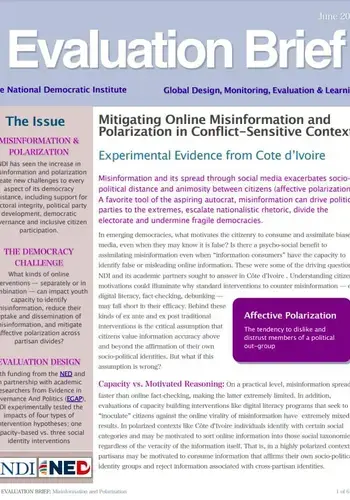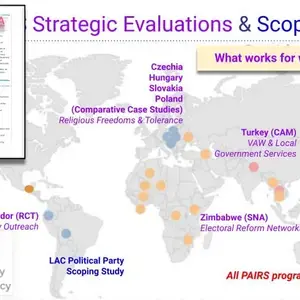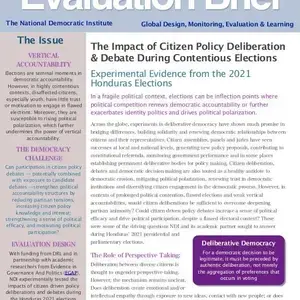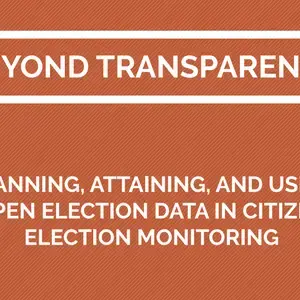For media inquiries, please contact Paulina Chavez [email protected].
As misinformation and polarization increase, NDI faces new challenges in its support for electoral integrity, party development, democratic governance, and citizen participation. Our Global Design, Monitoring, Evaluation, and Learning (G-DMEL) team, in partnership with NDI’s Côte d'Ivoire program, aimed to answer the following question: What kinds of democracy interventions - separately or in combination – can impact online misinformation uptake and dissemination among youth, and reduce affective polarizations across partisan divides? With funding from the NED and in collaboration with leading academic researchers from Evidence in Governance And Politics (EGAP), NDI experimentally tested the impacts of four types of intervention hypotheses: one based on capacity building (training on digital literacy) and three designed to mitigate socio-political motivations to consume and disseminate misinformation. The findings revealed that traditional digital literacy interventions alone did not change youth capacity to identify misinformation, nor their behavior in knowingly sharing misinformation. Surprisingly, social identity interventions did have impacts, but in unexpected directions. These critical insights are paving the way for NDI to rethink strategies to combat misinformation in highly polarized environments.




